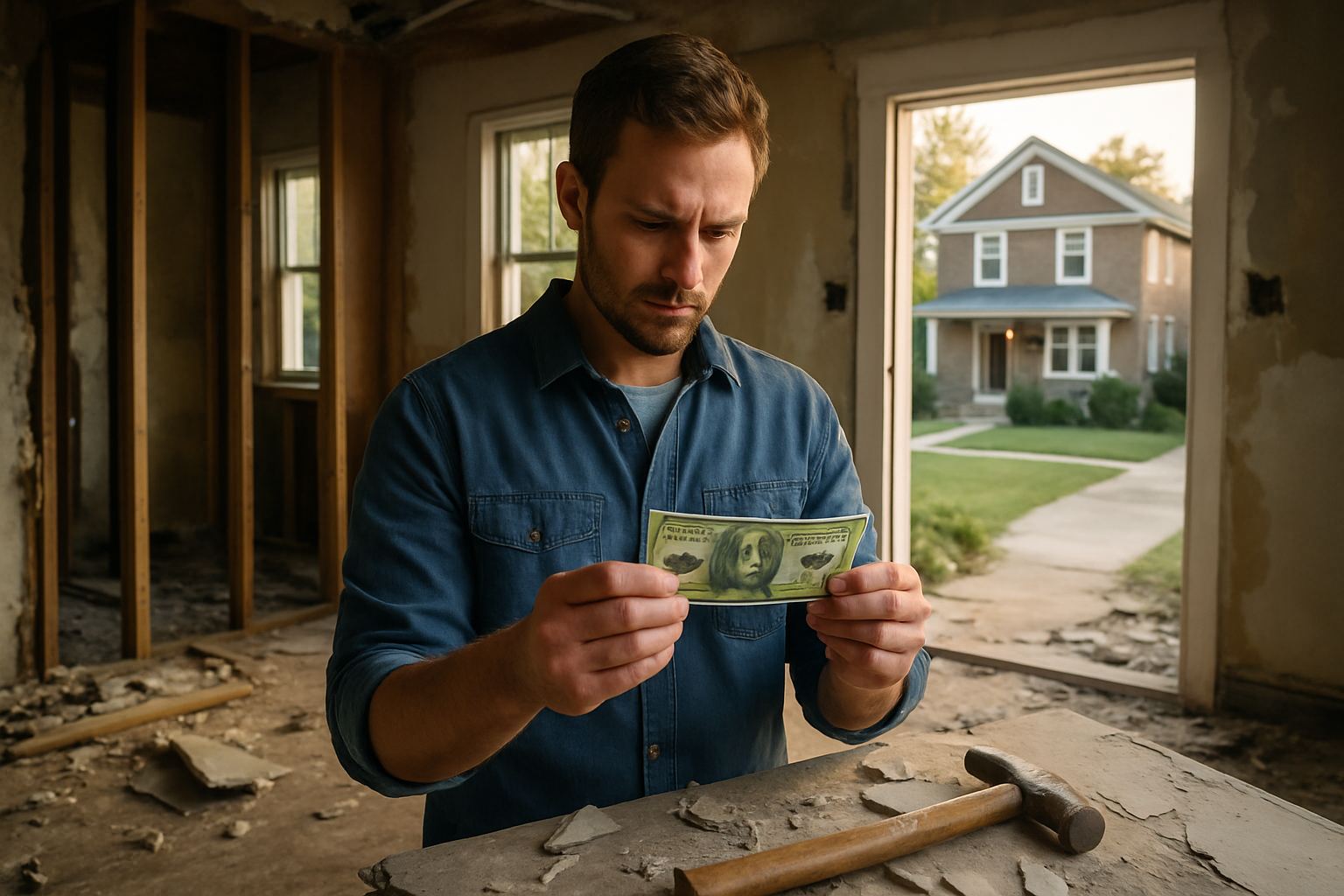Explore Insights Into Home Renovation Ideas That Shape Modern Living Spaces
Home renovation has evolved from simple repairs to comprehensive transformations that redefine living spaces. Modern homeowners increasingly view renovation as an opportunity to create personalized environments that reflect their lifestyle needs while enhancing property value. The renovation process encompasses everything from cosmetic updates to structural modifications, incorporating innovative materials, sustainable practices, and technology integration. As living patterns change and design trends evolve, renovation offers a pathway to reimagine existing spaces without the cost and disruption of relocation.

Understanding Home Renovation Fundamentals
Home renovation encompasses a wide range of activities aimed at improving, updating, or transforming residential spaces. The scope can vary significantly, from minor cosmetic updates like painting and fixture replacement to major structural changes such as room additions or complete layout reconfigurations. Before embarking on any renovation project, homeowners should establish clear objectives, whether enhancing functionality, increasing energy efficiency, improving aesthetics, or addressing structural issues. Understanding these fundamentals helps create a focused renovation plan that aligns with both immediate needs and long-term goals, preventing scope creep and budget overruns that often plague poorly planned projects.
Trending Design Approaches in Renovation Services
Contemporary renovation design approaches emphasize creating multifunctional spaces that adapt to changing needs. Open-concept layouts continue to dominate residential renovations, removing unnecessary walls to create flowing spaces that facilitate connection between family members while maximizing natural light. Biophilic design elements that incorporate nature into indoor environments have gained significant traction, including living walls, expansive windows, and natural materials like stone and wood. Smart home integration has become a standard consideration in renovation design, with infrastructure planning for connected appliances, lighting systems, and security features. Renovation design services now frequently incorporate sustainability considerations from the outset, planning for energy efficiency, water conservation, and environmentally friendly materials.
Finding Quality Home Renovation Expertise in Your Area
Locating skilled professionals for home renovation projects requires thorough research and careful vetting. Start by seeking recommendations from friends, family, and neighbors who have completed similar projects, as firsthand experiences provide valuable insights into workmanship and reliability. Online platforms dedicated to contractor reviews offer a broader perspective, though results should be evaluated critically. Professional associations and local building departments can provide lists of licensed contractors in your area. When evaluating potential renovation experts, verify proper licensing, insurance coverage, and relevant experience with projects similar to yours. Request detailed written estimates from at least three contractors, comparing not just bottom-line costs but also the scope of work, materials specified, and projected timelines. Personal interviews with potential contractors reveal communication styles and compatibility for what can become a lengthy working relationship.
Maximizing Value Through Strategic Renovation
Strategic renovation focuses on improvements that deliver the highest return on investment while enhancing daily living. Kitchen and bathroom renovations consistently rank among the most valuable updates, often returning 70-80% of their cost upon resale while significantly improving quality of life. Energy efficiency upgrades, including improved insulation, window replacements, and HVAC system modernization, offer ongoing savings while appealing to environmentally conscious buyers. Creating additional usable space through basement finishing, attic conversions, or thoughtful reconfiguration of existing areas typically yields strong returns. When planning value-focused renovations, consider the neighborhood context and local market preferences to avoid over-improvements that may not be fully appreciated in your specific location.
Key Considerations When Selecting Renovation Services
Choosing the right renovation service involves evaluating multiple factors beyond simply comparing cost estimates. Experience with similar projects demonstrates a contractor’s ability to anticipate challenges specific to your renovation type. Communication style and responsiveness during the planning stages often indicate how the working relationship will proceed during construction. A detailed, comprehensive contract protects both parties by clearly defining scope, materials, payment schedules, and procedures for handling changes. Project management capabilities become particularly important for complex renovations involving multiple subcontractors and sequential work phases. Verify the renovation service’s approach to quality control, including supervision practices and inspection procedures. Additionally, ask about post-completion service policies, as reputable renovation companies stand behind their work with meaningful warranties and responsive follow-up.
Understanding Home Renovation Costs and Provider Options
Home renovation costs vary significantly based on project scope, materials selected, property location, and contractor selection. Kitchen renovations typically range from $15,000 for basic updates to $50,000+ for premium renovations, while bathroom remodels average $10,000-$30,000 depending on fixtures and finishes. Whole-house renovations can range from $100 to $200 per square foot depending on the extent of changes and quality level.
| Renovation Type | Average Cost Range | Typical Timeframe | Value Considerations |
|---|---|---|---|
| Kitchen | $15,000-$50,000+ | 4-8 weeks | High ROI (70-80%), significant impact on daily living |
| Bathroom | $10,000-$30,000 | 2-4 weeks | Strong ROI (60-70%), appeals to future buyers |
| Basement Finishing | $25,000-$75,000 | 4-8 weeks | Adds usable square footage, moderate ROI (50-70%) |
| Whole House | $100-$200 per sq ft | 3-9 months | Comprehensive transformation, variable ROI |
| Addition | $200-$500 per sq ft | 2-4 months | Increases home size, moderate to high ROI depending on design |
Prices, rates, or cost estimates mentioned in this article are based on the latest available information but may change over time. Independent research is advised before making financial decisions.
Creating Sustainable and Future-Proof Renovated Spaces
Sustainable renovation approaches focus on reducing environmental impact while creating spaces that remain functional and appealing for years to come. Energy-efficient windows, doors, and appliances reduce ongoing utility costs while minimizing carbon footprint. Water-saving fixtures, including low-flow toilets and smart irrigation systems, address increasing concerns about resource conservation. Durable, low-maintenance materials may require higher initial investment but offer superior longevity and reduced replacement frequency. Adaptable design elements accommodate changing needs throughout different life stages, incorporating features like wider doorways, curbless showers, and flexible room configurations that support aging in place. Smart home technology infrastructure should be planned with expansion capabilities, allowing for future advancements without major retrofitting requirements.




